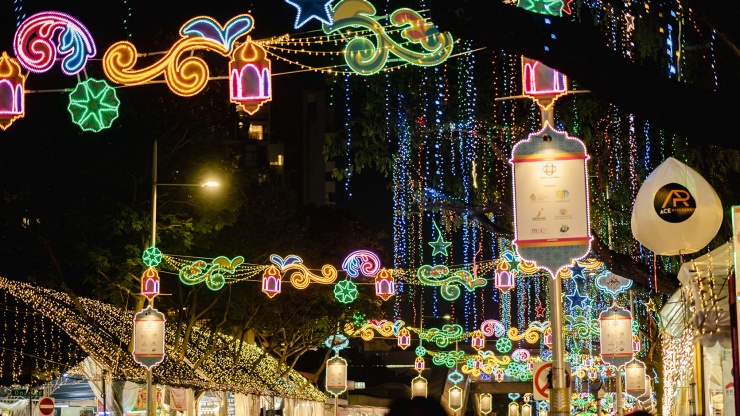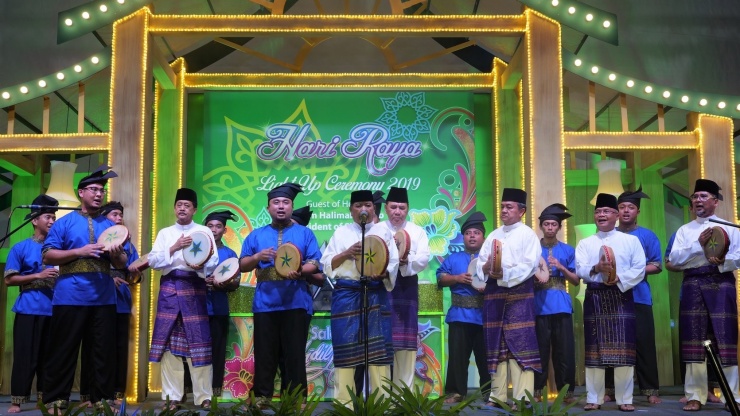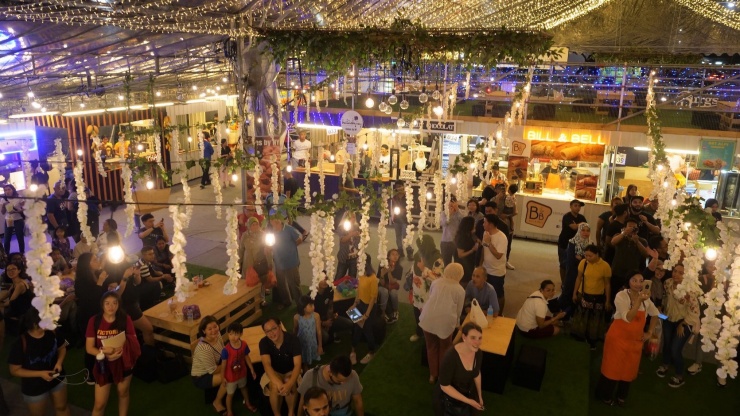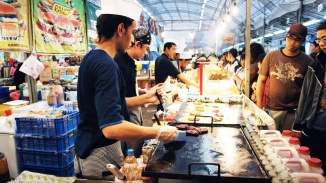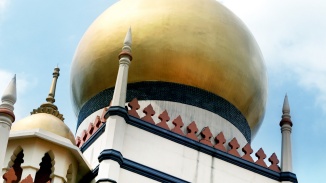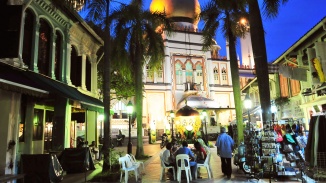On Hari Raya Aidilfitri, Muslims in Singapore end their time of fasting with a joyous celebration of forgiveness, fellowship and food.
Marking the end of the Islamic holy month of Ramadan is the festival of Eid, known in Singapore as Hari Raya Aidilfitri or Hari Raya Puasa. Ramadan is a period of sober repentance for Muslims, during which adherents of the faith worship, engage in acts of compassion and fast from dawn to dusk for approximately 30 days.
Read on to discover how Hari Raya Aidilfitri is celebrated in Singapore, and how you can be part of this festive occasion.
Hari Raya Light-Up & Geylang Serai Bazaar
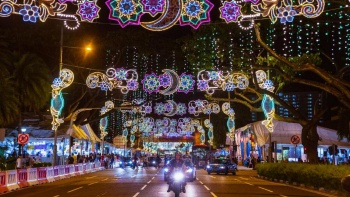
A month leading up to Hari Raya, visitors can drop by Geylang Serai to enjoy the festival light-up. The festivities typically take place along Sims Avenue and Changi Road, in between Paya Lebar and Eunos MRT stations.
In addition, there will also be a physical bazaar from 8 March – 10 April 2024, with over 500 stalls selling food, drinks, and a myriad of cultural festivities that visitors can participate in to experience the festive vibes.
Contemplation and celebration
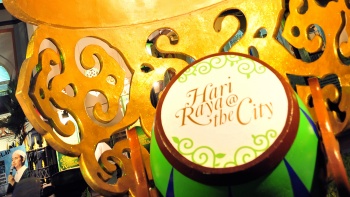
Many Malay families in Singapore don new clothes in the same hue—men in loose shirts with trousers known as 'baju Melayu' and the women in 'baju kurung', a loose-fitting full-length blouse and skirt combination.
The day begins with a trip to the mosque where special prayers are recited. Then it’s off to see the parents—Muslims traditionally ask for forgiveness from their elders for any wrongs committed during the year. More visits are made to see relatives and friends, where home-cooked feasts await.
Scrumptious treats
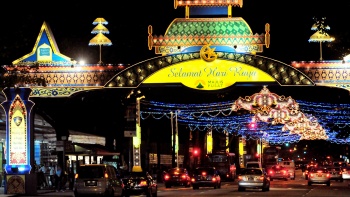
If you're lucky enough to be invited to a Hari Raya meal, you'll find a wide variety of dishes on offer—beef rendang (braised meat cooked in coconut milk and spices), sayur lodeh (vegetables cooked in coconut milk gravy) and sambal (spicy chilli paste)—along with fluffy white rice and ketupat (rice cakes).
The desserts are just as delicious, particularly the kueh (bite-sized snacks or desserts). Try the ondeh-ondeh (chewy balls with gooey palm sugar centres) or putu piring (steamed rice cakes with sweet grated coconut).
A festival of culture and colours

Traditional garb is a common sight during Hari Raya Aidilfiltri, with Muslim women often donning the baju kurung (traditional garb originating from the Malay peninsula), sometimes accompanied by a matching tudung (headscarf).
Often made of silk or hand-dyed batik, the vivid colours, lively patterns and delicate stitching along the baju's collar make these outfits a sight to behold. This traditional costume continues to be worn even today because it is comfortable and practical for Singapore's warm climates.
